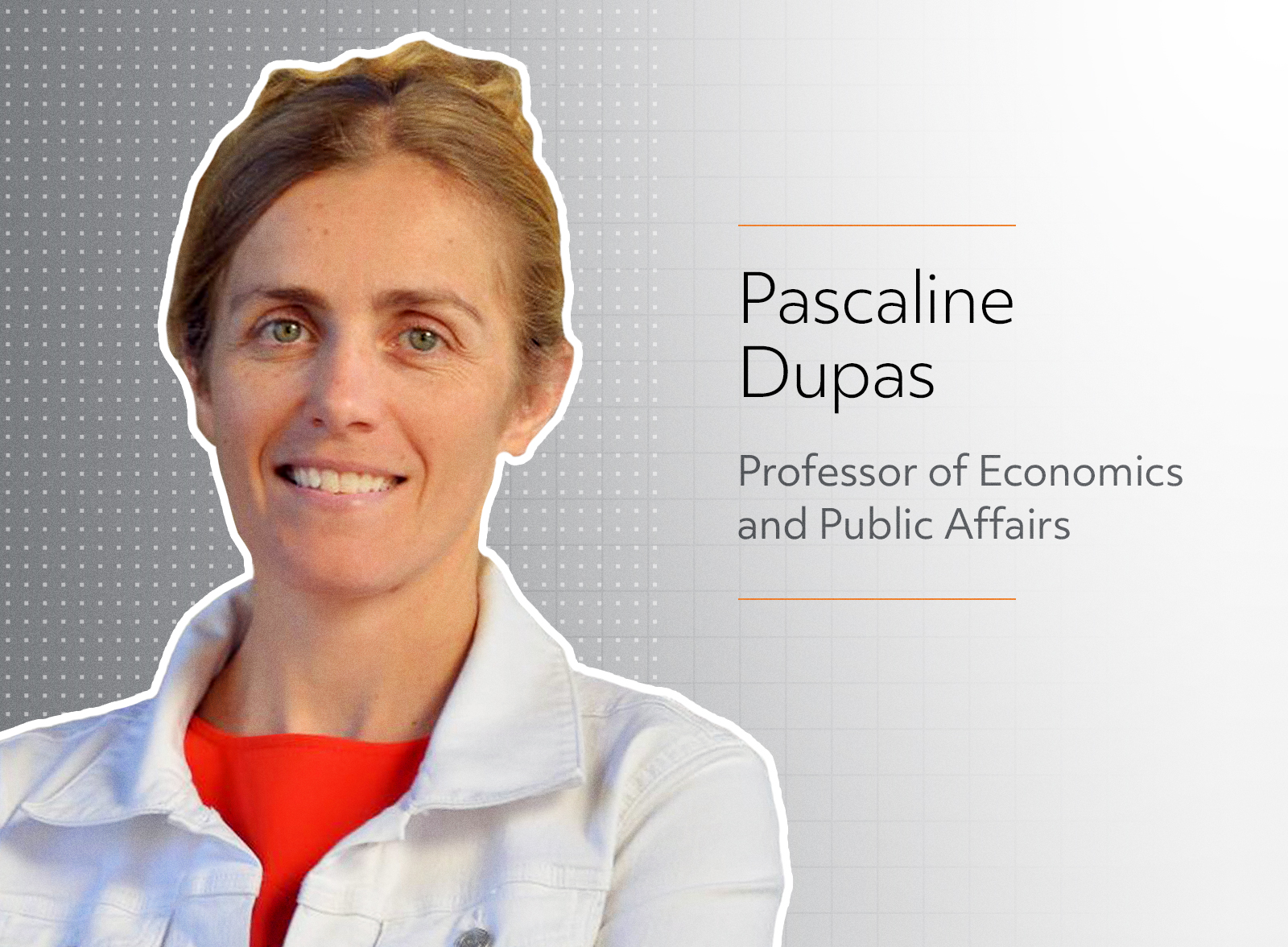A Q&A with Princeton Professor Pascaline Dupas

For more than two decades, Pascaline Dupas has been traveling the globe to better understand the challenges facing poor households in lower-income countries and help identify solutions. From her earlier work on malaria prevention to more recent work on how to encourage mothers to speak to their babies, Pascaline Dupas’ work has demonstrated how, through collaboration and careful research design, development economists can help decision-makers improve people’s day-to-day lives.
This summer, Professor Dupas joined the faculty at Princeton as a Professor of Economics and Public Affairs with the Department of Economics and the Princeton School of Public and International Affairs (SPIA). She’ll also serve as co-chair, alongside Princeton Professor Seema Jayachandran, of Princeton’s Research Program in Development Economics (RPDE)—a new initiative that aims to improve the lives of people living in low- and middle-income countries.
In addition to her role at Princeton, Dupas is the co-president of the Bureau for Research and Economic Analysis of Development (BREAD) and co-chair of the health sector for the Abdul Latif Jameel Poverty Action Lab (J-PAL).
As the semester begins, we reached out to Professor Dupas to learn more about her research and what she’s working on as she starts this new chapter at Princeton.
Q: You moved to Princeton from California this past summer. What was the highlight of your first summer in New Jersey?
A: The highlight was the trip to New Jersey. My partner, our two kids, and I crossed the country in a minivan. We took 20 days, a lot of detours, and did many wonderful hikes along the way. We had a great time on the trip, but were also very excited to reach our destination at the end of August. We have been enjoying the warm evenings outdoors ever since we arrived.
Q: What inspired you to study economics? Can you remember when you decided it was the right field for you?
A: I double majored in philosophy and economics. Neither discipline, at least the way they were taught at the time, felt very connected to the pressing social problems that I was passionate about as a twenty year-old. But after college, I had the chance to spend a few years working for and with scholars who were using the tools of economics in a way that was considerably more appealing than the textbooks. In 2001, Michael Kremer and Esther Duflo, who went on to jointly win a Nobel Prize, hired me to go to Kenya and help manage some of their first research projects in partnership with governments and NGOs. This is when I discovered what the pathway from economic research to impact can look like, and I got hooked.
Q: You earned your Ph.D. at the School for Advanced Studies in the Social Sciences in Paris and since then have conducted dozens of research projects around the globe. What projects are you most proud of, and what are you working on now?
A: The projects I am most proud of are some of the simplest ones: establishing that people don’t need to have paid for something to value it, or that adolescent girls make smart choices when they get full information about the risks in their environment, or that subsidizing girls’ education has very high returns even in a poor macroeconomic environment. These projects have been impactful because they provide decision-makers with clear, timely, actionable evidence. That’s what I aim for in my research.
In terms of current research: Among other things, I am working with state governments in India on the design of health insurance schemes that aim to expand healthcare access and financial protection for poor households. One of the challenges is how to incentivize private hospitals to provide quality care for the poor, without breaking the government’s bank.
Q: Looking at the field of development economics, what do you think are some of the most exciting recent developments?
A: For a long time, research on microeconomics issues affecting poor people in poor countries was constrained by lack of data. We have been collecting our own data for decades in order to work on these issues, but data collection requires a specialized skill set (not typically taught in grad school!), a very good dose of grit, and a fairly high tolerance for risk. That means development economics, to this day, has remained a separate subfield of economics, somewhat niche.
But I believe we are at a turning point because the availability of high quality, digital administrative data from low- and middle-income countries is growing considerably. This means we (development economists) don’t have to remain niche. Experts from other applied economics fields, such as public finance, labor, industrial organization, etc., will hopefully join in and bring their expertise to bear on these new data sources.
Q: Development economics is a highly collaborative field. For the benefit of our students who want to learn more about the field, who are some of the other researchers you admire, or some foundational papers or books you recommend for further reading?
A: I encourage the students to browse the programs of the annual development conferences at NBER or BREAD to familiarize themselves with the breadth of topics and methods used in the field. As for books, I’d like to recommend a book that’s not by a development economist, but by a historian, Jonny Steinberg. The book—“A Man of Good Hope”—touches on a lot of issues that I hope development economists and political scientists can start tackling soon.